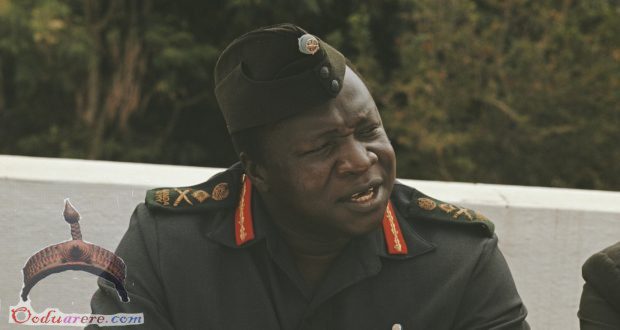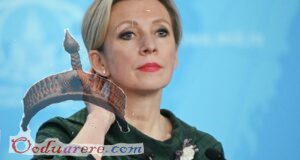An economy that only served the colonial master. Idi Amin was called Conqueror of the British Empire because in 1972 he kicked out the British. He collected their properties & gave Ugandans. He was loved by Ugandans because he made major contributions to building Uganda.
He built more education facilities & opened the once exclusive ‘Asian’ schools to all Ugandans. He turned these schools into public institutions administered by his govt. Idi Amin Kicking neo-colonialism out of Uganda. This made the West angry. Their envy continues to paint him with blood & murder with the darkest tales of cannibalism.
They completely buried the story of an honest, incorruptible, selfless African hero who came from humble beginnings where his poor parents couldn’t even afford to educate him. Idi Amin was regularly seen in the streets of Kampala walking or driving past alone without a bodyguard. Something that would have been completely impossible to come out from alive if he had been the blood-thirsty animal who was killing 500,000 of his people.
The colonial army recruited northern Ugandans because they were believed to be physically strong. Amin was a naturally tall and well-built.
Despite his limited education he rose through the ranks to army commander in 1965, three years after Uganda’s independence, and that is how he worked closely with Milton Obote, whom he ended up toppling in a coup in 1971.
He anointed himself president of Uganda. Because of his little formal education, many took him for a fool and believed he was a puppet of Western powers.
Read more
 Ọmọ Oòduà Naija Gist | News From Nigeria | Entertainment gist Nigeria|Networking|News.. Visit for Nigeria breaking news , Nigerian Movies , Naija music , Jobs In Nigeria , Naija News , Nollywood, Gist and more
Ọmọ Oòduà Naija Gist | News From Nigeria | Entertainment gist Nigeria|Networking|News.. Visit for Nigeria breaking news , Nigerian Movies , Naija music , Jobs In Nigeria , Naija News , Nollywood, Gist and more









